Austin Film Society
AFS Doc Nights Preview: Sweet Dreams

2014 marks 20 years since the Rwandan genocide. The months-long attack led by Hutus in 1994 resulted in the deaths of hundreds of thousands of Tutsis, almost 20 percent of the country's population. The 2012 documentary Sweet Dreams, screening next week for Austin Film Society's Doc Nights series, depicts a community-building program that is helping female Rwandans recover from those horrific events.
Ingoma Nshya is the first all-female drumming troupe in Rwanda, formed of Hutus and Tutsis. Some members lost family in the genocide, and some have family in jail for their participation in the mass killings. Troupe leader Kiki Katese meets some ice-cream makers from Brooklyn and is inspired to have the Rwandan women start their own shop, Inzozi Nziza (which means "sweet dreams").
Sweet Dreams has many interviews with women from the group. There's Clementine, a young woman who walks 1.5 hours to town for rehearsals. Another woman, whose parents are currently jailed, says, "If ever there's a place you can find peace, that place is Ingoma Nshya. That's where I was reborn." Co-directors Lisa and Rob Fruchtman follow the ladies through the formation of their co-op and past the troubled days leading up to the store's opening.
AFS Essential Cinema Preview: Liv Ullmann and Ingmar Bergman, Painfully Connected
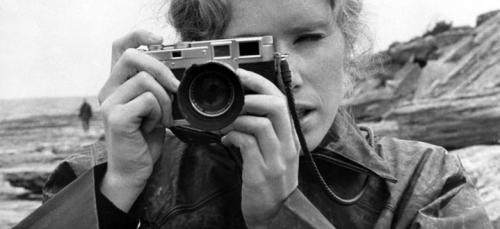
The next Austin Film Society Essential Cinema Series, "Liv and Ingmar," will run on Thursdays at 7:30 pm from July 3-31 at the Marchesa. The following column from programmer Chale Nafus provides some context for the films.
Marlene Dietrich and Josef von Sternberg, John Wayne and John Ford, Ingrid Bergman and Roberto Rossellini, Robert DeNiro and Martin Scorsese, Ethan Hawke and Richard Linklater. Throughout film history there have been directors who frequently work with one particular actor through whom they can realize their cinematic dreams. Familiarity with an actor's face, body, voice, mannerisms and psychological depths can provide a director a preview of how a movie might look and sound even before the cameras roll.
Such was the 12-year relationship between Norwegian actress Liv Ullmann and Swedish writer/director Ingmar Bergman. Together they made eight feature films and one television miniseries, beginning with Persona (1966) and ending with Autumn Sonata (1978). They also fell in love during the production of their first film together.
The filming of Persona (which screens July 3) took place on the remote Swedish island of Fårö, an island off the coast of an island, a place Bergman had loved ever since filming Through a Glass Darkly there in 1961. He was drawn to its solitude and stark natural beauty. It easily served as a setting that forced people to confront their own inner demons as well as those of the people around them. Such would happen with Bergman and Ullmann.
Summer Viewing: Linklater Follows Up 'Jewels in the Wasteland' with Early 80s Film Recs
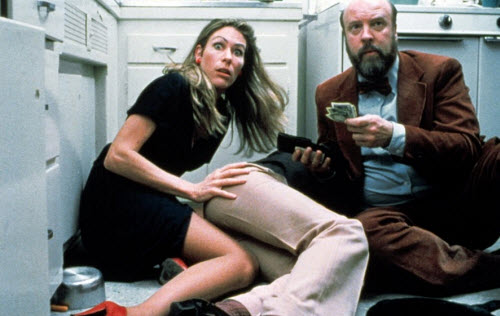
By Richard Linklater
[Editor's note: Austin Film Society co-founder and filmmaker Richard Linklater recently curated "Jewels in the Wasteland," a series focusing on films of the early 1980s. Today, as a guest columnist for Slackerwood, he recommends other movies he was unable to include in the series.]
We're looking forward to continuing the "Jewels in the Wasteland" series at some point with films from 1984-1986! Below are various titles that would have fit nicely in this first section of 80s films. Before we get going again, we'll likely have some one-off screenings (hopefully Pixote and Baby It's You) that represent additional titles from the first part of the 80s, so keep an eye out for them.
In the meantime, please feel free to check out the below suggestions:
- Last month's Atlantic City begs you to continue with both Louis Malle's My Dinner with Andre and Bill Forsyth's Local Hero with Burt Lancaster. If you love Local Hero like I think you will, please check out an earlier film of his, Gregory's Girl. I noticed Danny Boyle included a clip from it during his Olympic opening ceremonies.
AFS Doc Nights Preview: Afternoon of a Faun: Tanaquil Le Clercq
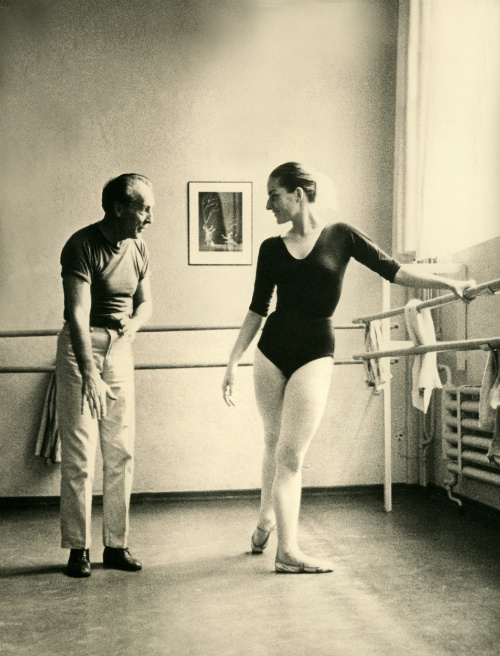
Perhaps, as I was, you are unfamiliar with the name Tanaquil Le Clercq. This skilled dancer, a principal with the New York City Ballet struck with polio at the age of 27, is the focus of Afternoon of a Faun. The documentary about the ballerina's life comes from Nancy Buirski (The Loving Story), and is the Austin Film Society Doc Nights selection for June.
Tanaquil, known to her friends as "Tanny," started dancing at a young age and impressed choreographers such as George Balanchine and Jerome Robbins. A friend says, "Her body created inspiration for choreographers." She would form strong relationships with those two -- going on to marry Balanchine in 1952 and having a decades-long intense friendship with Robbins. Correspondence between Tanny and Robbins is read during Afternoon of a Faun, showing her dark humor and glimpses of her character, as well as the deep affection felt between them.
Along with these letters, director Buirski compiles interviews with friends and fellow dancers, vintage video, old photos, and audio clips from a past interview with Le Clercq to give the viewer a sense of the ballerina's story. Even in the sometimes scratchy video clips included in the movie, Le Clercq's magnificent talent is obvious. Her performance of Balanchine's La Valse is especially haunting. Portions of Robbins' Afternoon of a Faun start and close the film.
Afternoon of a Faun: Tanaquil Le Clercq will screen on Wednesday, June 11 at AFS at the Marchesa. Ticket information is on the AFS site.
AFS Essential Cinema Preview: Films of WWI

The latest Austin Film Society Essential Cinema series, "Films of World War I," runs on Thursdays at 7:30 pm, from June 5-24, at the Marchesa. The following column from programmer Chale Nafus offers some background on the movies selected to screen.
In August 1914, World War I broke out in Europe, ostensibly because of the assassination of the heir apparent to the Austro-Hungarian Empire. But Germany and France had been itching for war, the former to extend her territories, the latter to regain Alsace-Lorraine, lost to the Prussians in 1870. A series of interlocking treaties pulled Great Britain, Italy and Russia into the maelstrom until the entire continent was up in flames and running red with the blood of millions. Each side thought it would win and be home for Christmas.
Four years later, when the Armistice was signed on November 11, 1918 (because of American military power entering the war in 1917 and exhaustion on the part of all combatants) nearly 10 million people (soldiers and civilians) had died. Three empires (Russian, Austro-Hungarian, and Ottoman) fell and were carved up by greedy neighbors or ethnic groups with long memories. Monarchies disappeared, to be replaced initially by well-intentioned attempts at parliamentary governments, but many of those would turn fascist in the 1920s and 1930s. Diseases, especially influenza, traveled home with soldiers and decimated civilian populations. The world was forever changed by The Great War, only to begin the entire process over again on an even larger scale 20 years later.
Motion pictures were in their adolescence when World War I began. Italy started making feature films in 1913 about the glorious Roman empire, and in the US, D.W. Griffith was filming his racist masterpiece The Birth of a Nation (1915). By the end of the war, the feature-length film was the new norm for film producers all over the world. World War I inevitably became a subject for narratives. Many such movies would question the entire endeavor. One of the first to do so was by French filmmaker Abel Gance.
AFS Series Preview: Lars Nilsen on 'Rebel Rebel'
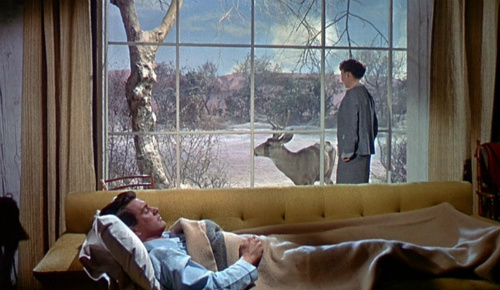
Austin Film Society recently released the schedule for their next film series, "Rebel Rebel." Douglas Sirk's classic All That Heaven Allows and a 1974 John Waters film are among the five titles to be screened at AFS at the Marchesa starting Friday. To get a little more insight into the reasoning behind this series and how the chosen movies fit with the theme, I emailed Lars Nilsen, AFS Programmer.
Slackerwood: What led you to this theme of programming?
Nilsen: As much as I like doing series focusing on one director or actor or on the films of this or that country, I also like variety and the catch-all nature of a series about Rebellion or about Cool allows us to show a package of really spectacular films that might not be shown under any other context. I also think it's important that we as an arts organization celebrate rebellion because it is one of the mainsprings of our character, and I want to perpetuate the concept of rebelliousness wherever I can. It's maybe the only thing that can save our world.
Sundance in Austin: An #ArtistServices Workshop Wrap-up
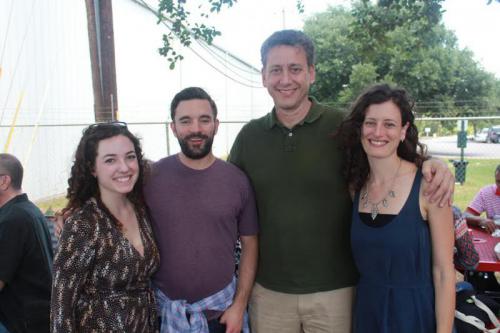
Last Saturday, the Austin Film Society successfully hosted the first ever Sundance #ArtistServices Workshop in Austin. #ArtistServices is an organization operated by the Sundance Institute that provides distribution support and assistance to Sundance alumni. They also work to educate up-and-coming filmmakers about all the latest trends in marketing and distribution, and have previously held workshops in Park City, Los Angeles, San Francisco and New York.
Three Sundance staff members (Joseph Beyer, Chris Horton and Missy Laney) were on hand for Saturday's event and had clearly worked closely with AFS to organize a well-run and enlightening collection of panels and conversation. In her opening salvo, AFS Associate Artistic Director Holly Herrick emphasized the workshop aspect of the day and encouraged attendees to ask questions at any point.
The first section of the workshop was specifically devoted to crowdfunding, and this topic continued to resurface throughout the day. In particular, inexperienced filmmakers often aren't aware of the tax implications and responsibilities that go along with using Kickstarter or Indiegogo to fund a project. These can be incredibly helpful tools, but it's important to know what you're doing before you start. Cameron Keng (a tax lawyer), Deena Kalai (an entertainment lawyer), Shannon Swallow (the head of Marketing Communications for Indiegogo) and Evan Glodell (the writer/director of Bellflower) were on hand to offer no-nonsense advice to filmmakers considering crowdfunding.
Spend an Animated Sunday Afternoon with AFS and the Hubleys

This year marks 100 years since animator John Hubley's birth. To celebrate the work of this man and his wife/collaborator Faith Hubley, Austin Film Society will be hosting an afternoon of shorts by the team as part of the Hubley Centennial.
Their daughter Emily Hubley, an animator and creative force in her own right, will introduce the screening and then participate in an AFS Moviemaker Dialogue afterwards (a separate ticket).
You may not think you've seen any of the Hubleys' work before, but given that they worked on TV ads and public television programs such as Sesame Street and The Electric Company -- along with their singular short films -- you most likely have. The shorts included in the Centennial programming are new 35mm prints from the Hubleys' oeuvre between 1956-1970. Their Oscar-winning Moonbird will be screened, as well as Windy Day (still above, includes voices of daughters Emily and Georgia) and Tender Game (features music from Ella Fitzgerald and Oscar Peterson) among others. You can view the list of the shorts in the program here.
AFS Will Host First Austin Sundance #ArtistServices Workshop
 On Saturday, May 10, Austin Film Society will host a day-long workshop geared toward independent filmmakers and featuring over a dozen film industry experts and creative pros. Sundance #ArtistServices Workshops began in 2011, and this will be the first installment held in Austin.
On Saturday, May 10, Austin Film Society will host a day-long workshop geared toward independent filmmakers and featuring over a dozen film industry experts and creative pros. Sundance #ArtistServices Workshops began in 2011, and this will be the first installment held in Austin.
Topics to be covered during the event include licensing and distribution, creative marketing, digital cinema mastering, key art, crowdfunding, and all the other details that make releasing a film into the world an exciting but often completely overwhelming endeavor.
The Sundance Institute is known for supporting developing artists with bold new stories to tell, and in similar ways AFS has worked to assist local filmmakers as they try to master the skills required to stand out in a marketplace mostly dominated by big-budget fare. As you know if you follow our monthly Ready, Set, Fund column, it's an exciting time for indie filmmakers due to all the technology and resources available, but no one can make it without a little help.
World War I Series Combines Forces of Ransom Center, AFS and Paramount
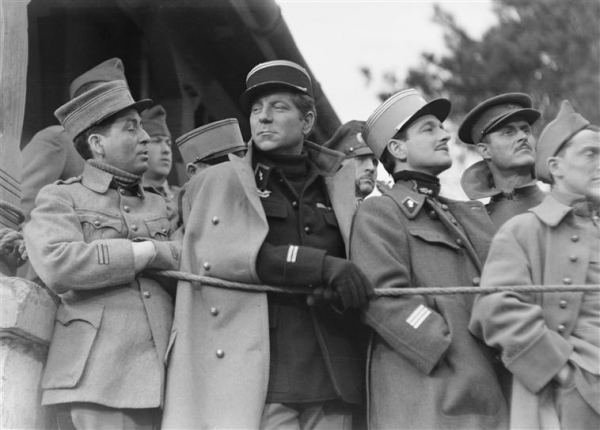
100 years after the start of World War I, three Austin organizations are teaming up to showcase cinema of or about the conflict. The Paramount Theatre and Austin Film Society are joining the University of Texas Harry Ransom Center, which is holding the current exhibition "The World at War, 1914-1918," to host a combined total of 13 films running May through July.
The screenings at the Ransom Center are free (bear in mind it's not a large theater), but tickets are required for the AFS at the Marchesa and Paramount/Stateside shows. Here's the schedule, which concludes with Lawrence of Arabia shown in 70mm:
Mon, May 5, 7 pm, Stateside at Paramount
Grand Illusion (pictured above), 1937 [tickets]
This moving French classic from director Jean Renoir features Jean Gabin among others at a German POW camp. Screens as a double feature with L'Atalante as part of Paramount's 100th birthday celebration.

